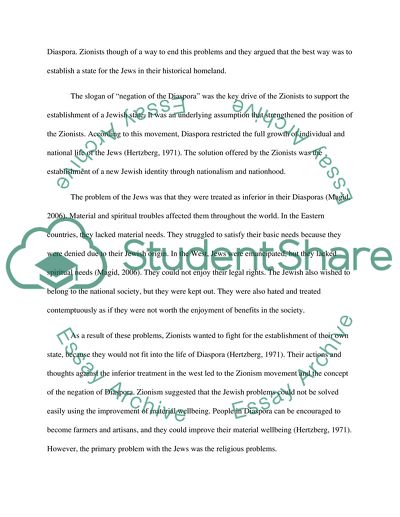Cite this document
(“Zionism and the Negation of the Diaspora Essay Example | Topics and Well Written Essays - 1250 words”, n.d.)
Retrieved from https://studentshare.org/history/1689834-zionism-and-the-negation-of-the-diaspora
Retrieved from https://studentshare.org/history/1689834-zionism-and-the-negation-of-the-diaspora
(Zionism and the Negation of the Diaspora Essay Example | Topics and Well Written Essays - 1250 Words)
https://studentshare.org/history/1689834-zionism-and-the-negation-of-the-diaspora.
https://studentshare.org/history/1689834-zionism-and-the-negation-of-the-diaspora.
“Zionism and the Negation of the Diaspora Essay Example | Topics and Well Written Essays - 1250 Words”, n.d. https://studentshare.org/history/1689834-zionism-and-the-negation-of-the-diaspora.


